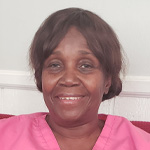Preventing Slips and Falls in Icy Weather
Slush, sleet, black ice and snow—every winter, these weather phenomena contribute to slips, trips and falls. For the elderly, even a minor slip or fall could cause serious injuries, meaning that practicing caution and care is critical. Here, the elderly care providers at Avila Home Care detail ways to prevent slips and falls in icy winter weather.
Every year, more than one in three people 65 and older will fall, leading to fractures, sprains, scrapes, bruises, head injuries and even death. Fall-related injuries are often more serious for elderly people, meaning that the elderly must exhibit more care and caution when walking, especially outside in slippery conditions. Here are a few practical tips for facing the icy winter season outdoors, and for ensuring you reduce your chances of falling all year round.
Have Your Hearing and Vision Tested
Changes in your hearing or vision can impair your balance, coordination or ability to see or hear upcoming hazards in your walkway, all of which can increase your chance of falling. Have your hearing and vision tested regularly to ensure nothing is amiss. Always wear glasses or contacts if you are prescribed them, and ensure your hearing aid fits correctly and works well before going out.
Stay Physically Active
Staying physically fit lessens your risk of falling by strengthening your muscles and improving your balance. If you do fall, getting in shape will also help to prevent injury, as it strengthens bones, increases flexibility and decreases healing time. Talk to your doctor about implementing an exercise regimen that is right for your unique needs—swimming, walking and light yoga are all beneficial and low-impact exercises for seniors.
Be Aware of Medical Side Effects
Some medications can cause dizziness, nausea, confusion or sleepiness, all of which can contribute to falls. Pay attention to the labels on any prescriptions you take, and be aware of how you feel after taking any medication. Do not exert yourself if you are experiencing side effects that may cause you to fall. Talk to your doctor if you experience any unusual, extreme or prolonged side effects.
Wear Proper Shoes and Walk with Caution
Well-fitting, thick-soled shoes with traction are the best choice for going out in winter weather. If an occasion calls for a dressier pair of shoes, pack them along with you—it may be bothersome to have to change footwear at your destination, but it’s not worth risking your health and safety.
But, remember that even the most winter-appropriate footwear may not prevent a fall. Walk slowly, with flat feet, and test each spot with one foot before placing your weight on it. Take advantage of any railings or assistive devices available to you.
Be Aware of Slippery Floors
Snow, ice and slush outside can mean slippery surfaces once people have come inside. Place a mat at the front door to catch snow and ice-melt from people’s shoes, and wipe up any slick spots on linoleum, tile or hardwood floors to prevent a slip.
Stay Inside on Inclement Days
Sometimes, the winter weather is so bad, it simply isn’t worth risking going out. Err on the side of caution, and stay indoors if it is particularly icy or snowy. If you have errands you must get done, enlist the help of a friend, loved one or caretaker. At Avila Home Care, we want our elderly friends to stay safe—which is why our dedicated and experienced professionals are available to help out with any errands you must run, no matter the weather. We are here to help you age in place in comfort and safety—contact us today for more information.
Dental Health Concerns for Seniors
Dental hygiene is important for individuals of all ages; however, seniors experience specific dental health issues due both to age and other factors. Here, the senior care providers at Avila Home Care discuss common dental health concerns for seniors, as well as strategies to maintain good dental health. Increased Likelihood of Cavities Cavities, or permanent…
Motunrayo (Mary) Orepekan is Avila’s Caregiver of the Month for February, 2023!
Please join us in congratulating Motunrayo (Mary) Orepekan- Avila’s Caregiver of the Month for February! Mary is the utmost professional, and she is incredibly loyal to all of her clients. She’s experienced working in especially challenging situations. Mary shows compassion and tenacity, and we are so fortunate to have her be a part of our…
Adassa Stewart is Avila’s Caregiver of the Month for September, 2022!
Congratulations to Adassa Stewart- Avila’s Caregiver of the Month for September! Adassa’s clients absolutely love her. She is reliable, responsible, kind and very good at being a caregiver who serves a vast array of clients and lovingly addresses their varied needs. We are honored that Adassa is a part of our Avila Home Care team!



